Murco oil workers in Pembrokeshire could use European aid
- Published
On Wednesday it emerged a deal to rescue the plant had fallen through at the eleventh hour
European Union funding should be sought to help hundreds of workers hit by the closure of the Murco oil refinery in Pembrokeshire, Plaid Cymru has said.
All but 60 of the plant's 400 jobs are set to go after a deal to save it from closure collapsed.
A task force led by Economy Minister Edwina Hart is due to meet next week to attract new jobs to Pembrokeshire.
Plaid Cymru MEP Jill Evans said money should be available under the EU's Globalisation Adjustment Fund.
'Priority'
"Many workers in other European countries who lose their jobs have benefitted from this support to retrain, look for new work or set up their own businesses," she said.
"We all pay into this fund so it's time that workers in Wales got the same help.
"The UK government has never used the fund because it would reduce the amount of rebate the Treasury gets from the EU," Ms Evans added.
"At a time of crisis with the announcement of the Murco closure, the government should give priority to the needs of the workers, their families and communities in Pembrokeshire."
Ms Evans said she was writing to Welsh Secretary Stephen Crabb urging him to apply for the funds.
Mr Crabb, who represents the area as MP for Preseli Pembrokeshire, is inviting Murco workers to meet him at an open surgery in Milford Haven on Friday, external.

View from Sarah Moore, BBC Wales' Pembrokeshire reporter

The waters leading into Milford Haven may be quieter in the future
The Milford Haven estuary must have looked quite different before the oil industry came along in the 1960s.
It was a fishing port which, over a period of just 13 years, suddenly became dominated by four huge refineries, with towering chimneys which lit up the sky at night. One after the other, they were built in a frenzy of major construction work.
Over the years, those four refineries haven't just employed a lot of people. They've brought thousands of highly skilled workers to the area to carry out well paid jobs, which clearly benefits the local supply chain. UK petroleum industry figures suggest that Murco alone has been worth around £30m a year to the local economy.
The succession of huge multinational owners have also taken an interest in the local area, donating big money to local causes, building local facilities, and sponsoring community ventures.
So when the oil industry came to Pembrokeshire, it may have changed the landscape of the Milford Haven estuary forever, but there was much to celebrate.
Unfortunately, there is very little that local politicians can do when a global industry changes, and, one by one, three of those four refineries have now gone again, and been turned into facilities which require far fewer staff.
Pembrokeshire has suffered other jobs blows over the years. Around 325 people worked at the Dewhirst jeans factory in nearby Cardigan, until it shut in 2002.
In 1995, more than 500 people lost their jobs when the Royal Navy Armaments Depot at Trecwn shut.
The ITV Digital call centre was hailed as a vital employer of 900 people when it opened in 2000 at Pembroke Dock, but it closed two years later.
Now, the county's larger private sector employers tend to be in retail, offering low-paid jobs, often only part-time.
Since the closure of ITV Digital, Pembrokeshire has managed to stay below the average unemployment rate for Wales, thanks mainly to a decade of major construction work around the Milford Haven estuary for a new gas-fired power station and two liquefied natural gas (LNG) terminals.
Two weeks ago the UK government confirmed planning permission for a new combined heat and power plant at South Hook.
If it goes ahead, that will create hundreds more construction jobs on the haven, at least in the short-term.

The sale of the plant to the Swiss-based Klesch Group was called off on Tuesday night after months of work behind the scenes involving close co-operation between the Welsh and UK governments.
The refinery will now enter a shut-down period and will be decommissioned while the company looks for a new buyer for what will become a storage and distribution base.
Economy Minister Edwina Hart told BBC Radio Wales on Thursday she was setting up a task force to look at ways of attracting new jobs to the area which redundant Murco workers could take up.
"Pembrokeshire and those individuals require help and assistance now," she said.
Jamie Adams, leader of Pembrokeshire council, said employers in the county and elsewhere would be invited to take a look at the "great skills" of the Murco workers and give them jobs where possible.
"There are... very new and innovative industries, those in renewables, so many opportunities coming," he said.
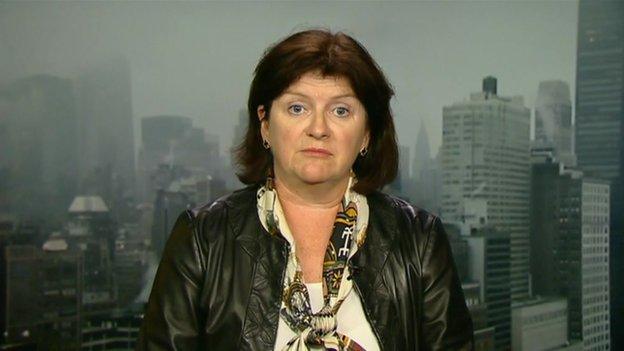
Dr Carol Bell hopes Murco employees can find work elsewhere
Energy industry executive Dr Carol Bell said she was "very saddened" to hear the news that the deal had fallen through.
Describing the oil refining industry in Western Europe as "challenged", she said she hoped former Murco employees would find other work, but stressed they may have to move to do so.
She said: "When I've seen things like this happen in America, what people do is move to where the work is. So people might have to move to find comparable jobs."
- Published6 November 2014
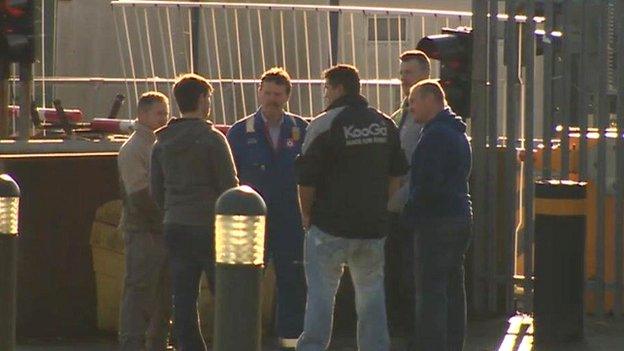
- Published5 November 2014

- Published5 November 2014
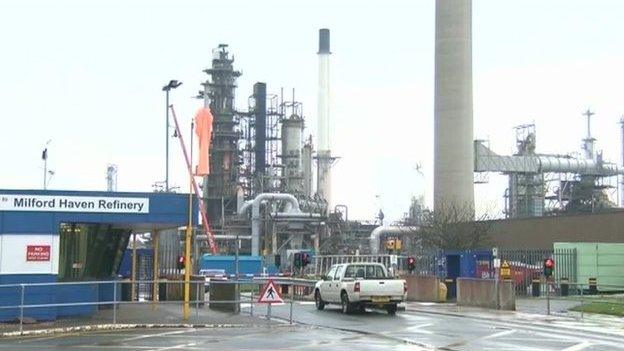
- Published5 November 2014
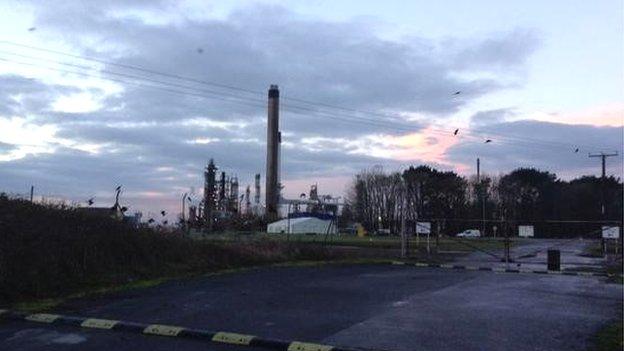
- Published5 November 2014
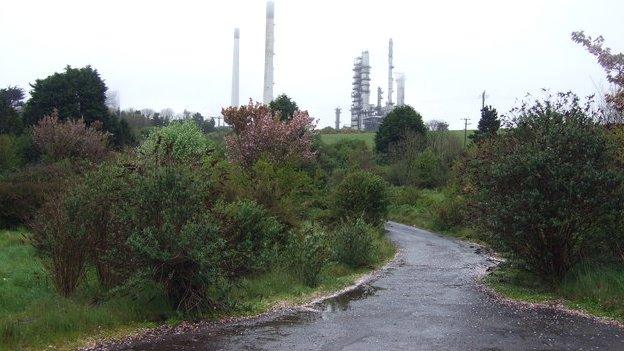
- Published10 October 2014
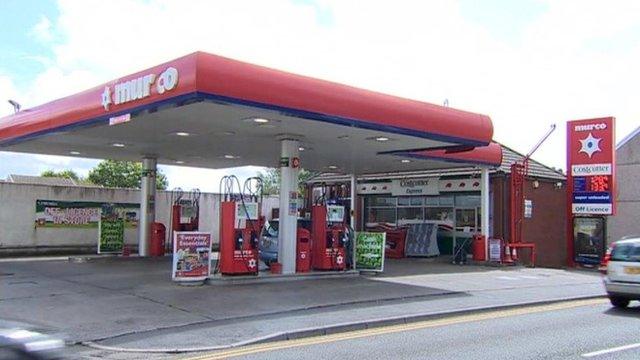
- Published31 July 2014
